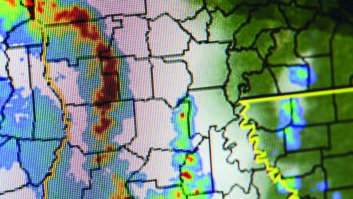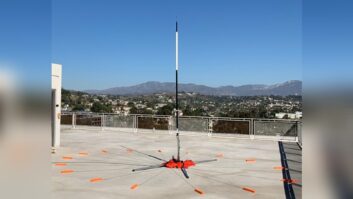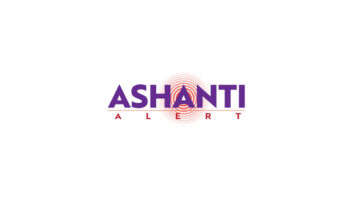This story has been updated to reflect the president’s signature on the bill.
The White House signed into law new legislation that makes public radio/TV and other nonprofit broadcasters eligible for federal assistance when their broadcast facilities are damaged by a natural disaster.
On Dec. 18, the president approved the Emergency Information Improvement Act, a measure that was introduced in the Senate in April by Sens. Cory Booker (D-N.J.) and Ted Cruz (R-Texas), and moved into the House thereafter by Reps. Steven Palazzo (R-Miss.) and Brian Higgins (D-N.Y.).
The measure modifies wording of the existing Robert T. Stafford Disaster Relief and Emergency Assistance Act to add broadcasting facilities to an existing list of private nonprofit facility that provide essential services.
“As we experienced during Superstorm Sandy, public radio and broadcast stations are an essential source of information when a disaster strikes,” Booker said after the House bill passed. “It is absolutely critical that we enable entities with broad communications reach to relay real-time information to the public during an emergency.”
The act ensures that stations would be eligible for disaster relief funding in the event their facilities are impacted by a natural disaster. “New Jerseyans and Americans who have endured severe weather disasters know all too well that access to emergency information can be a matter of life or death,” Booker said.
According to the bill’s authors, existing federal emergency relief statutes were “ambiguous” as to whether public media stations would be eligible for emergency financial assistance when damaged by storms and other disasters. This legislation was designed to designate public and other nonprofit broadcasting as one of several categories of critical services eligible for federal assistance in the event of a disaster in an effort to allow stations to continue to provide key information to local communities.
Among those supporting the legislation is National Public Radio, which pushed for this change.
“Passage of [this bill] is a very important step in making sure that America’s citizens and their communities have access to vital information during times of emergency and crisis,” said Mike Riksen, vice president of policy and representation for NPR, in a statement. “Local public radio stations play an essential role in bringing information about response efforts, local relief supplies, evacuation orders and emergency routes, where to find food, shelter and fuel as well as on-the-ground, at-the-scene reporting to help affected communities understand and respond. The Emergency Information Improvement Act is designed to bring greater stability to the availability of critical information during times of emergency and crisis.”
“Whether it’s remote, rural areas of our nation or densely populated cities, public media has become an essential and reliable source for timely and accurate information often related directly from emergency management officials and first responders,” he said.












